
Are Assam’s Floods Natural or Man-Made?
To find out whether the floods that Assam faces every year are natural or man-made, Newsreel Asia producer Tej Bahadur Singh travels to Lakhimpur district, one of the worst-hit by floods. He meets a 47-year-old Toramai Pawe, an ASHA worker and daily wage laborer, in Assam’s Pahumara Ahom village, who has lived for decades, raising her children in a modest home built through years of toil. In May 2025, a sudden flood, triggered by water released without warning from the Ranganadi Dam, swept through her village. Her husband, Biren, drowned just steps from their home, leaving Toramai in grief and despair. Their crops, belongings, and vital documents were washed away, joining the losses of countless others in their community. Across Assam, floods this year have affected 6.3 lakh people in 22 districts, claiming 26 lives and damaging 12,610 hectares of cropland.
To find out whether the floods that Assam faces every year are natural or man-made, Newsreel Asia producer Tej Bahadur Singh travels to Lakhimpur district, one of the worst-hit by floods. He meets a 47-year-old Toramai Pawe, an ASHA worker and daily wage laborer, in Assam’s Pahumara Ahom village, who has lived for decades, raising her children in a modest home built through years of toil. In May 2025, a sudden flood, triggered by water released without warning from the Ranganadi Dam, swept through her village. Her husband, Biren, drowned just steps from their home, leaving Toramai in grief and despair. Their crops, belongings, and vital documents were washed away, joining the losses of countless others in their community. Across Assam, floods this year have affected 6.3 lakh people in 22 districts, claiming 26 lives and damaging 12,610 hectares of cropland. For decades, Assam’s floodplains have been both a source of life and loss, with an average of 2.6 million people impacted annually. Districts like Lakhimpur and Dhemaji, downstream of the Ranganadi Dam, face devastating flash floods caused by sudden water releases from NEEPCO’s hydroelectric projects. These man-made disasters, compounded by a lack of early warnings and inadequate research, have turned fertile lands into zones of destruction. Families like Toramai’s lose not only their homes and livelihoods but also their sense of security. As infrastructure controls rivers without regard for communities, the floods in Assam reveal a deeper crisis—one where nature’s cycles are worsened by human hands, leaving millions to rebuild from nothing.

Inside Assam’s Bulldozer Politics Against Bengali-Speaking Muslims
Suleman Ali lived his entire life in Hasila Beel, a village in Assam’s Goalpara district. He built his home brick by brick over years of labor, married off his daughters there, and believed his documents proved he belonged. But one morning in June 2025, bulldozers reduced it all to rubble.

Exploited Women Workers of Assam’s Tea Industry
Neeta Oraon lives in Nazira, a small town in Assam’s Sibsagar district. At 27, she has already spent more than a decade working in a tea garden. Her dream of becoming a nurse gave way early to the demands of poverty, debt, and family survival. She now works long hours under the sun, earning 250 rupees a day while caring for her ailing mother. Like Neeta, thousands of women in Assam’s tea gardens remain trapped in cycles of generational hardship and unseen labour.

Meet India’s Youngest Journalists: Living and Reporting from the Streets
Among the tens of thousands of newspapers published in India, one stands truly unique — Balaknama (Children’s Chronicle). Curated by street children, the Delhi-based Balaknama brings powerful stories about underprivileged children and their surroundings in several cities across India. These children have lived the hardships they write about, giving their journalism rare authenticity and depth. Through Balaknama, they now have a platform to voice their issues and challenges.
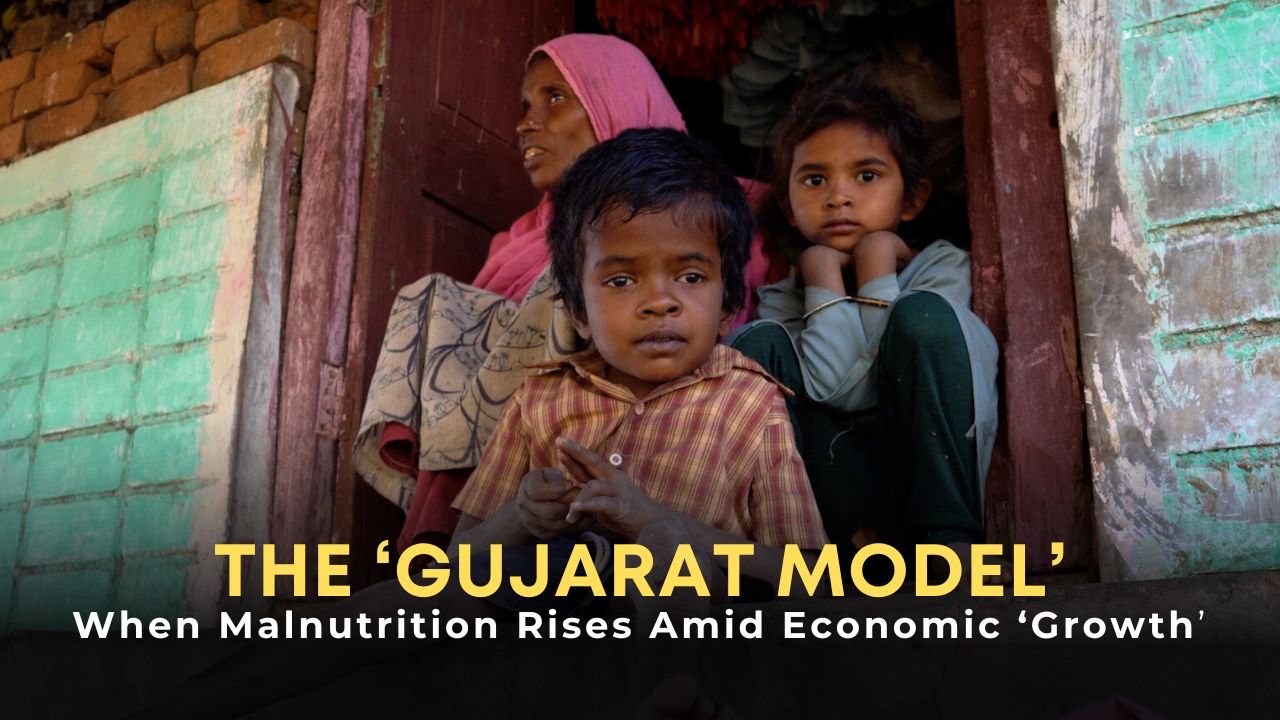
The ‘Gujarat Model’ – The Rising Malnutrition Amid Economic ‘Growth’
Sheela, a tribal activist from Devgadh Mahila Sangathan, Anandi Foundation, has dedicated her life to fighting for the rights of Adivasi and Dalit communities in Gujarat’s Dahod district. Her work has revealed a grim reality that contrasts sharply with the glowing narratives of Gujarat’s economic success. She takes Newsreel Asia into the heart of this crisis, introducing us to Anita Naik, a mother in Lawaria Village. Anita, like many others, struggles to keep her children alive. One of her children tragically passed away, while her three-year-old son, Rajesh, was born blind and with severe physical deformities—a devastating consequence of the silent malnutrition crisis in the state.
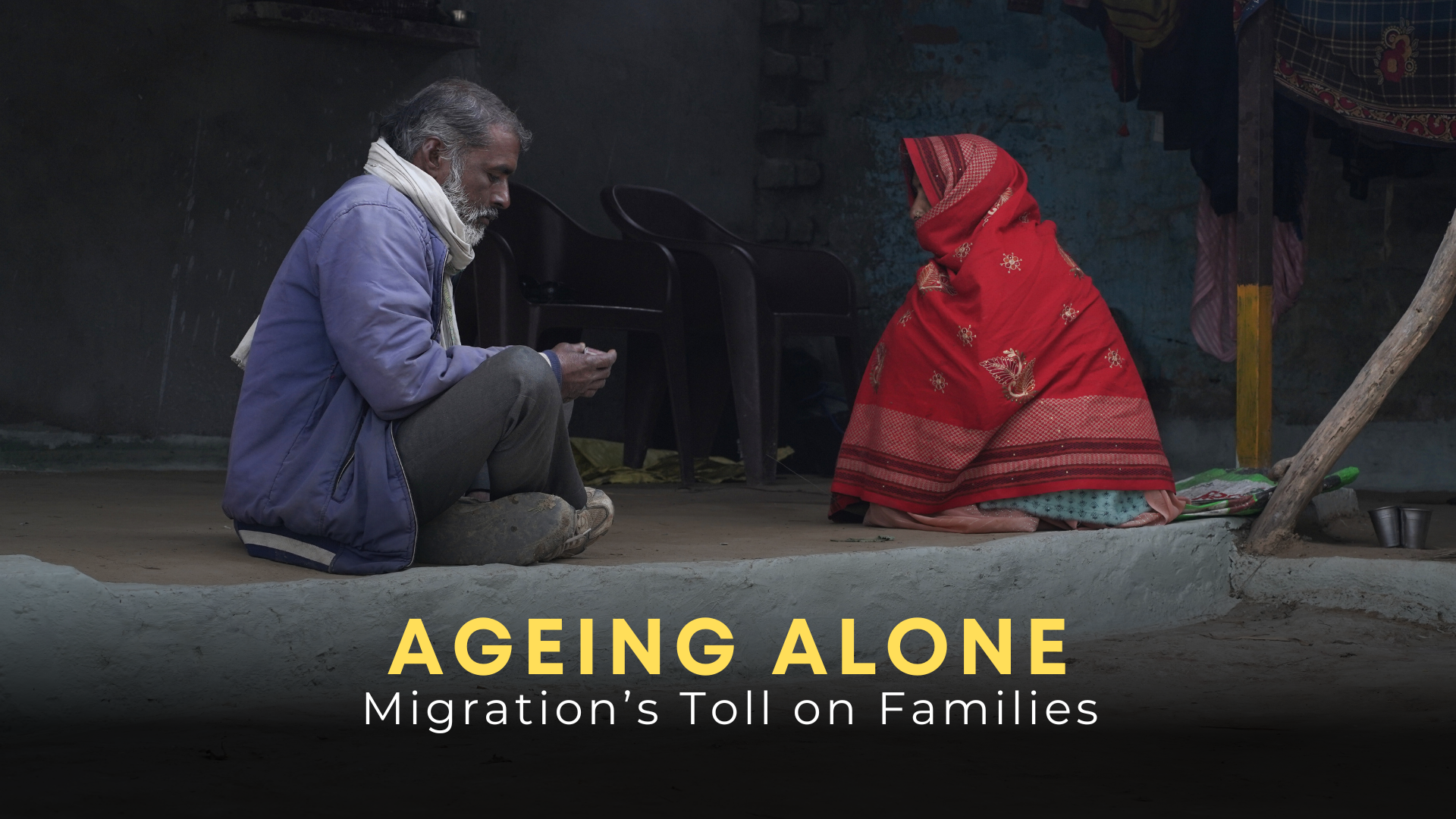
Ageing Alone – Migration’s Toll on Families in Madhya Pradesh
Haret Kevat and his wife, Nawal Devi, reside in the Morena district of Madhya Pradesh. Their children have moved to other states, driven by the scarcity of jobs and economic prospects in their home state. Their lives, marked by loneliness, represent the predicament of tens of thousands of elderly parents across the region. In Madhya Pradesh, where 36% of rural residents live below the poverty line, nearly half of the male population migrates for work—almost twice the national average. According to the India Employment Report 2024, 50.9% of these male migrants leave Madhya Pradesh for employment opportunities.
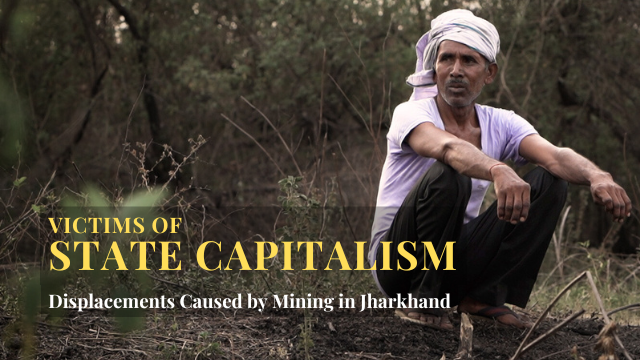
Jharkhand’s State Capitalism: Displacements by Mining
Madhusudan Mahto, a 60-year-old resident of Dhanbad district in Jharkhand state, is one of many paying the price for successive state governments' careless embrace of state capitalism. Coal mining has been ongoing in Jharkhand since 1901. Today, around 6,486 hectares of land in the state affected by the mining activity, while about 75% of the state’s population remains economically dependent on agriculture. Although mining is a lucrative source of revenue for the state and is prioritised over vital sectors like agriculture, it compromises the well-being of millions of residents who are not employed in the mining sector. And this is apart from significant environmental and health costs associated with the extraction of natural resources.

Jharkhand: Empty Plates, Silent Deaths
Bhukhal Ghasi, a 50-year-old laborer from Bokaro district in Jharkhand, had a family of seven to support. Amidst existing poverty and food scarcity, he struggled to find work. The situation worsened when he died of hunger in March 2020. Tragically, Bhukhal’s family faced another loss just a few months later. Jharkhand is the lowest-performing state in India’s ‘Zero Hunger Goal’ of SDGs, accounting for 33 of the 99 starvation deaths between 2015 and 2020. The state’s negligence left Bhukhal waiting for months to receive a ration card.
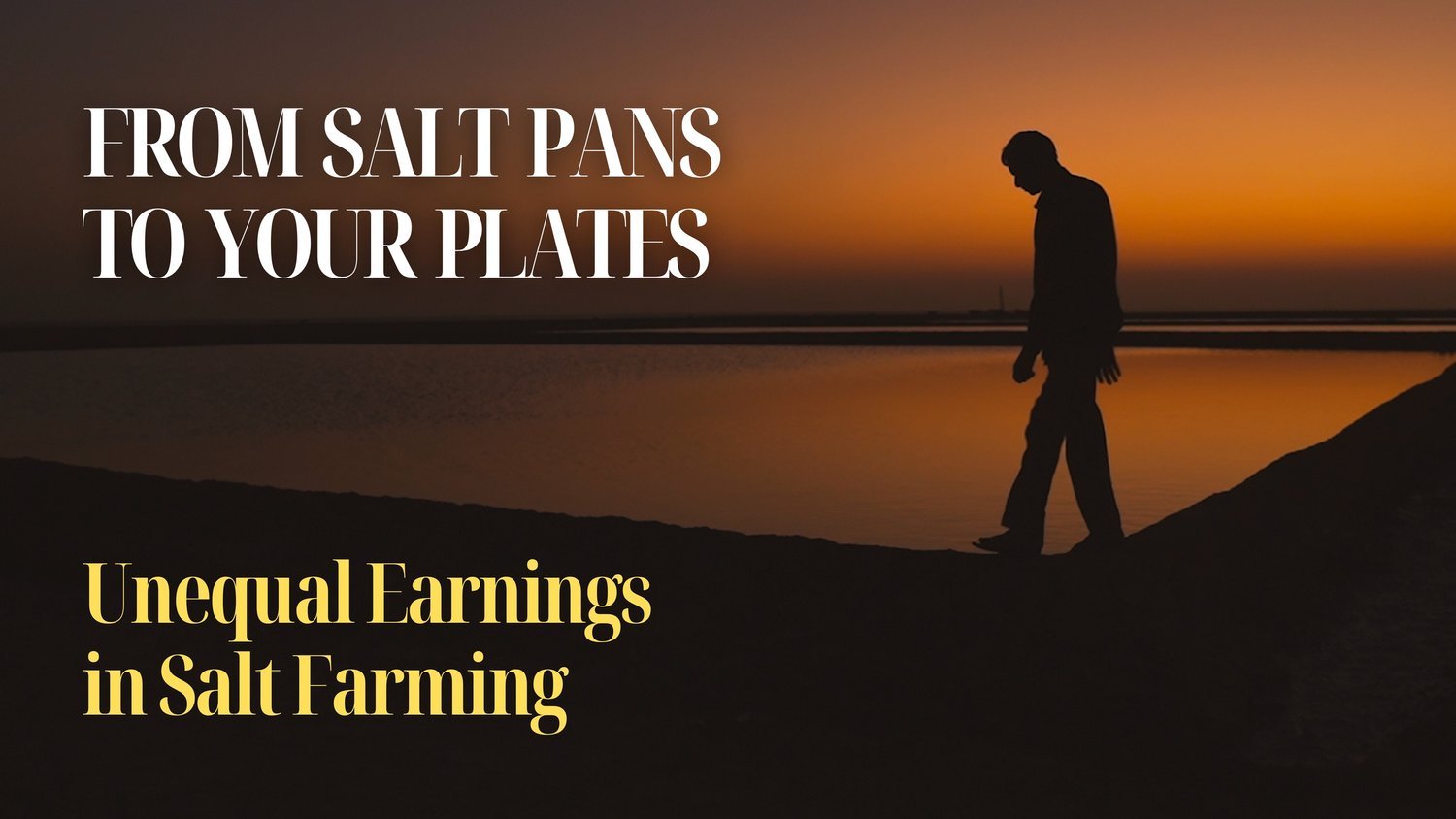
Unequal Earnings in Salt Farming
Gujarat stands as India’s foremost salt-producing state, contributing 85% to the nation's total salt output. Within Gujarat, 31% of this production originates from the Agariya community living within the Little Rann of Kutch. Despite being the primary contributors to the salt industry, the Agariya people find themselves receiving the smallest share of profits. Furthermore, they grapple with the adverse effects of climate change, directly impacting their livelihoods. In this narrative, Bhopa and Gunand, two Agariya salt farmers, shed light on the disparity in earnings within the salt farming sector.
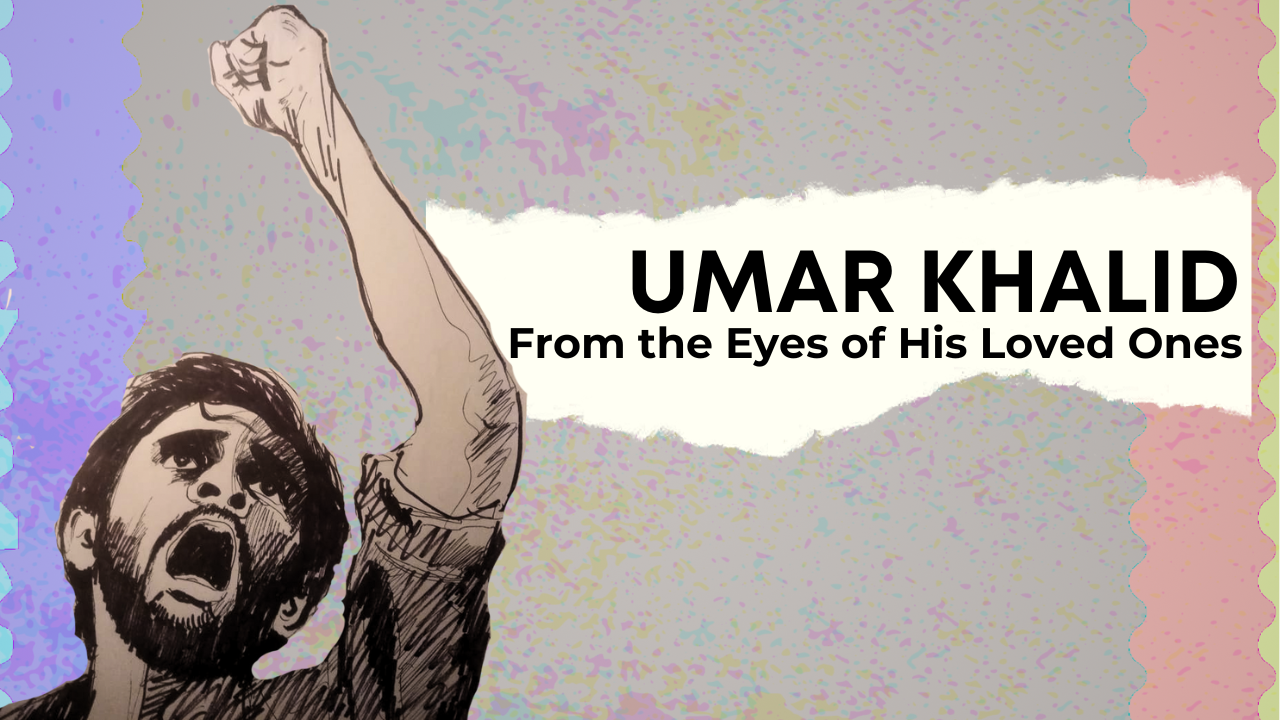
UMAR KHALID | From the Eyes of His Loved Ones
Umar Khalid, who once dreamed of playing cricket for India, now faces serious terrorism charges from the government. The vilification spurred by media trials reached its peak with a chilling assassination attempt. He's been in prison for 3.5 years as of March 2024, highlighting a worrying crackdown on dissent in India. This is his story, as told by his loved ones.
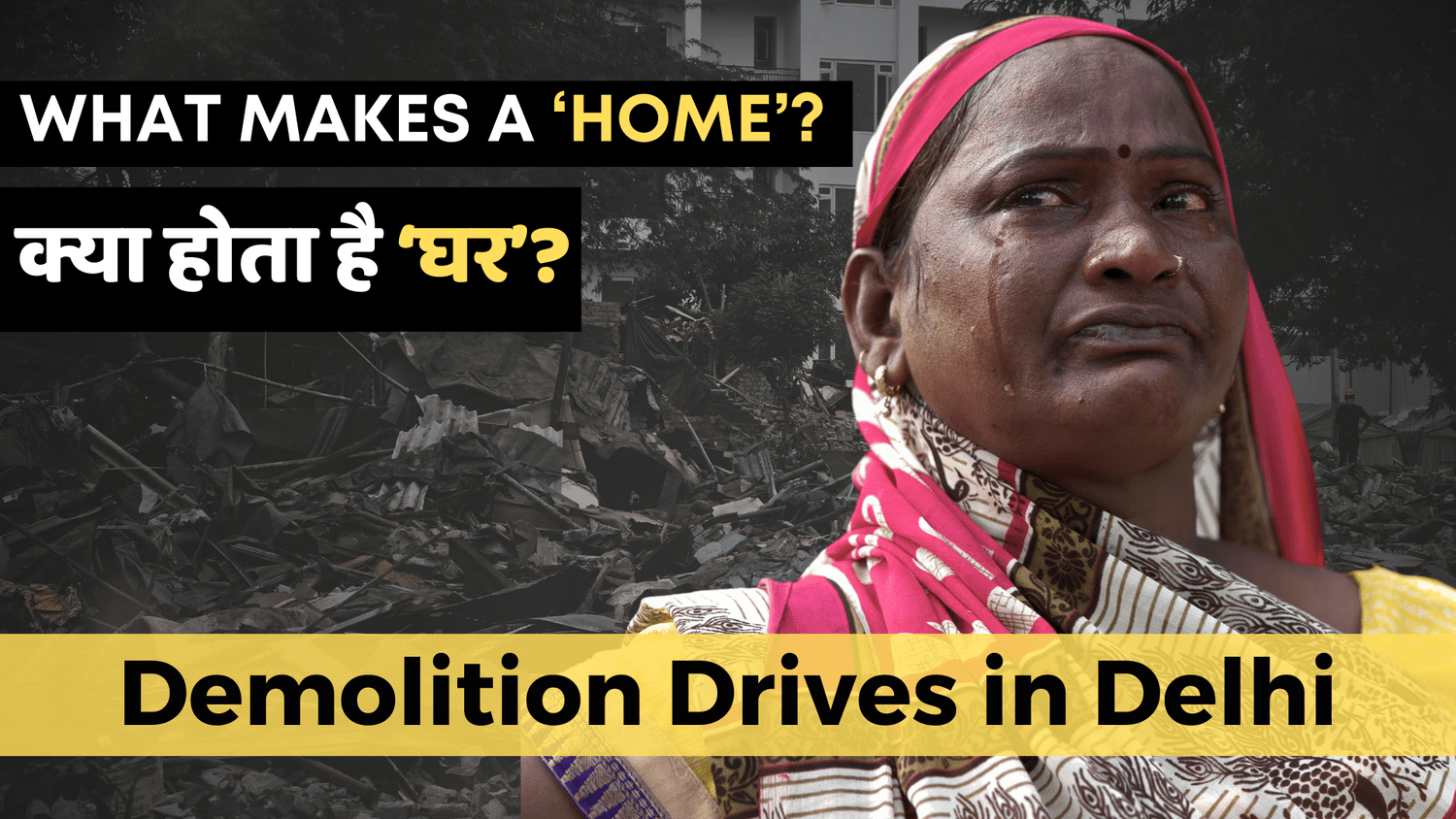
WHAT MAKES A ‘HOME’ | Demolition Drives in Delhi
The video delves into the lives of Delhi's slum dwellers, whose homes perpetually face the threat of demolition. In a recent case, on May 19, 2023, residents of Priyanka Gandhi Camp in Vasant Vihar, Delhi, received official notices from the National Disaster Response Force (NDRF) to vacate the land by June 15, 2023. Despite legal battles fought by the PG camp residents, their ‘Jhuggis’ (slums) were ultimately demolished. Between April 1 and July 27, 2023, Delhi witnessed 49 demolition drives. In 2023, at least 1600 homes have been destroyed and about 2,50,000 are homeless in India’s Capital. This story is about the plight of those who become homeless overnight.
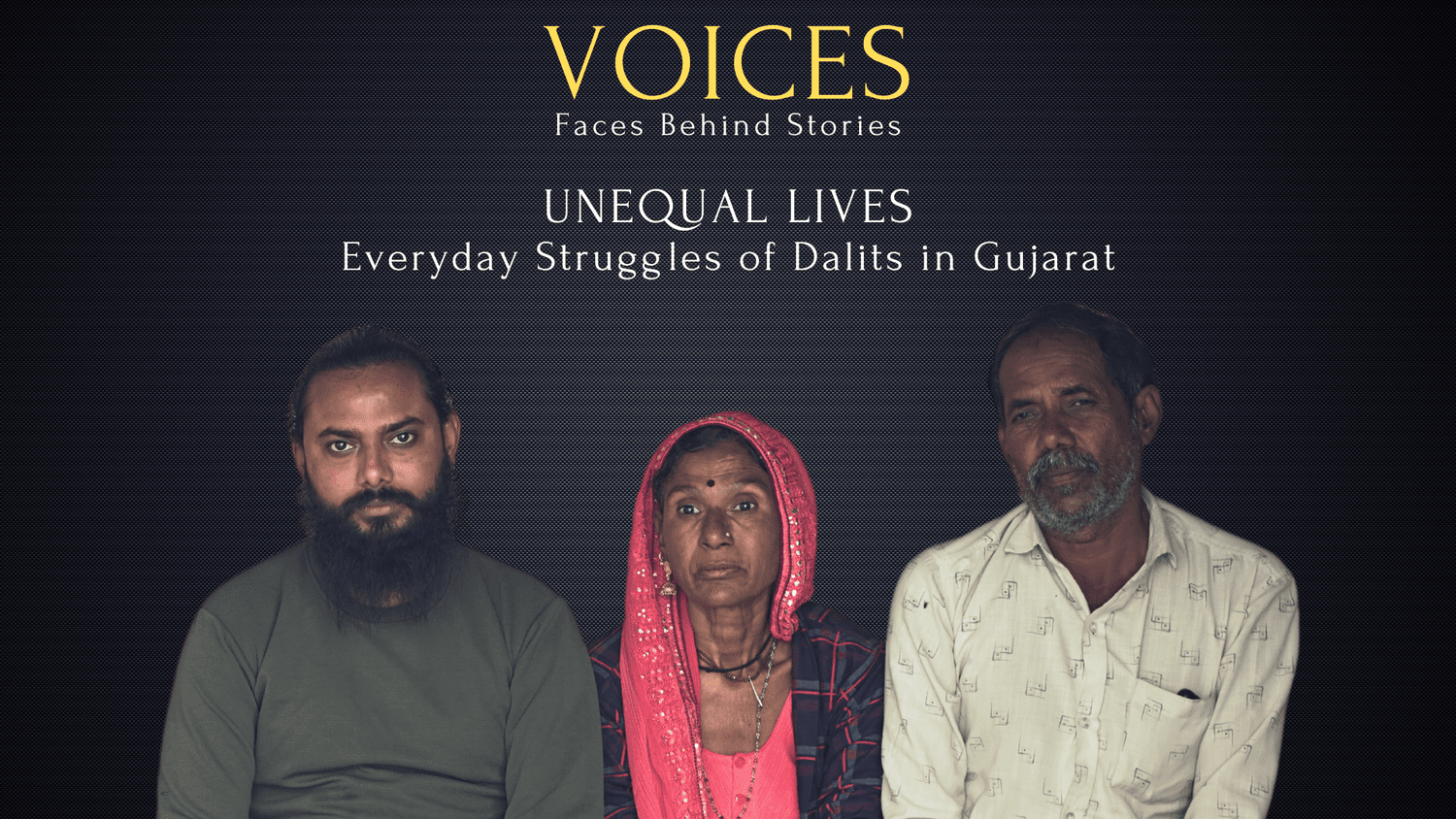
UNEQUAL LIVES | Everyday Struggles of Dalits in Gujarat
Bhupat Bhai Sekhaliya, a diligent and hardworking rickshaw driver from Gujarat, belongs to the Dalit community. Despite his unwavering dedication, the respect he deserves eludes him, particularly from individuals of "upper" castes in his vicinity. Many daily activities, deemed "normal" for any resident, remain inaccessible to him. Defiance can lead to physical assault. However, Bhupat's story is not an isolated incident. In Gujarat, the spectre of violence against Dalits looms large, with an average of four cases reported daily. The past seven years have seen a staggering total of over 9,000 documented instances of such violence.
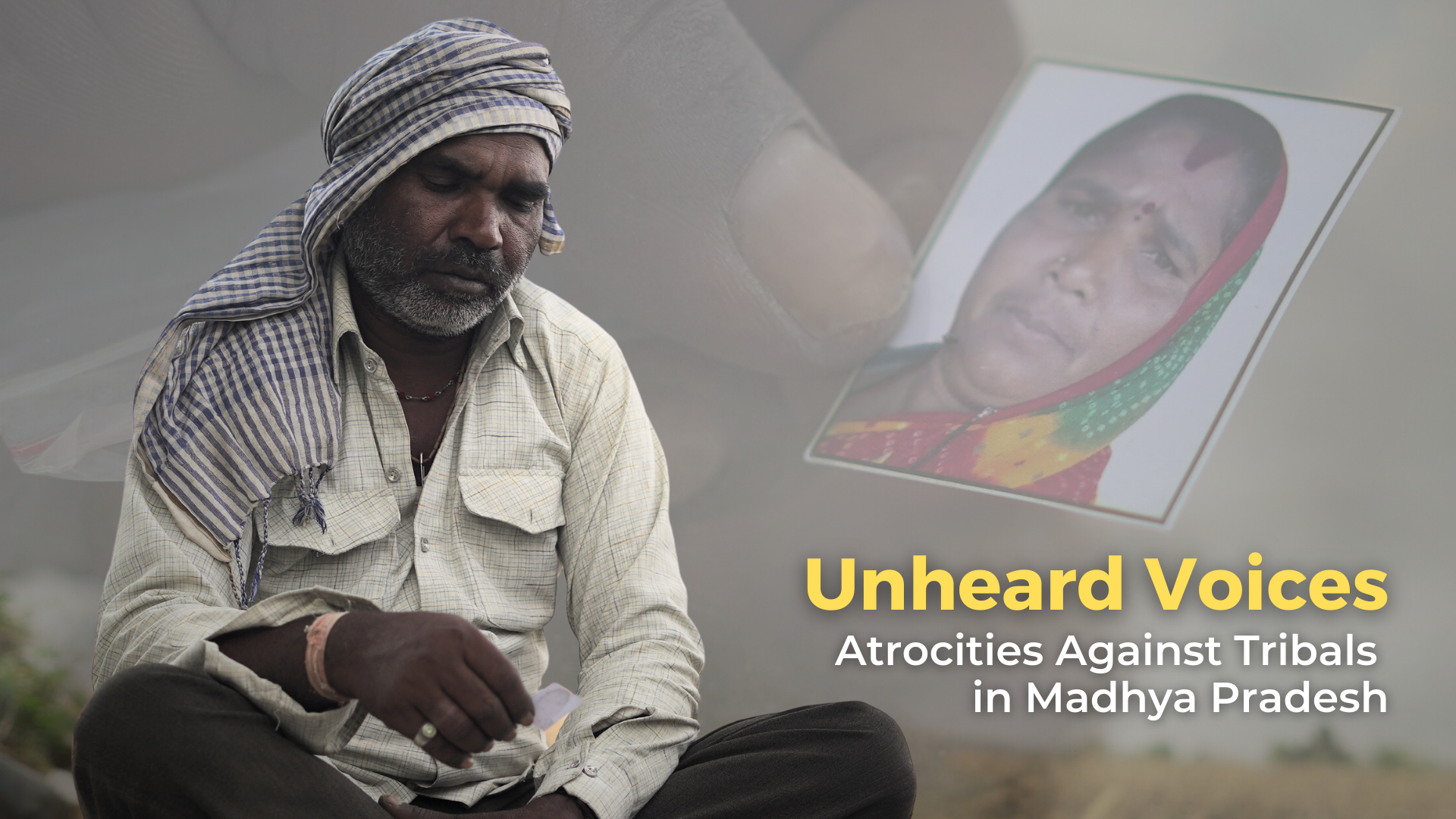
UNHEARD VOICES | Atrocities Against Tribals in Madhya Pradesh
Arjun Sahariya, a member of Madhya Pradesh’s Sahariya tribal group, courageously opens up about the atrocities inflicted upon his family. His situation is a representation of the increasing number of atrocities against tribal groups in the central Indian state which boasts the highest population of tribal communities.
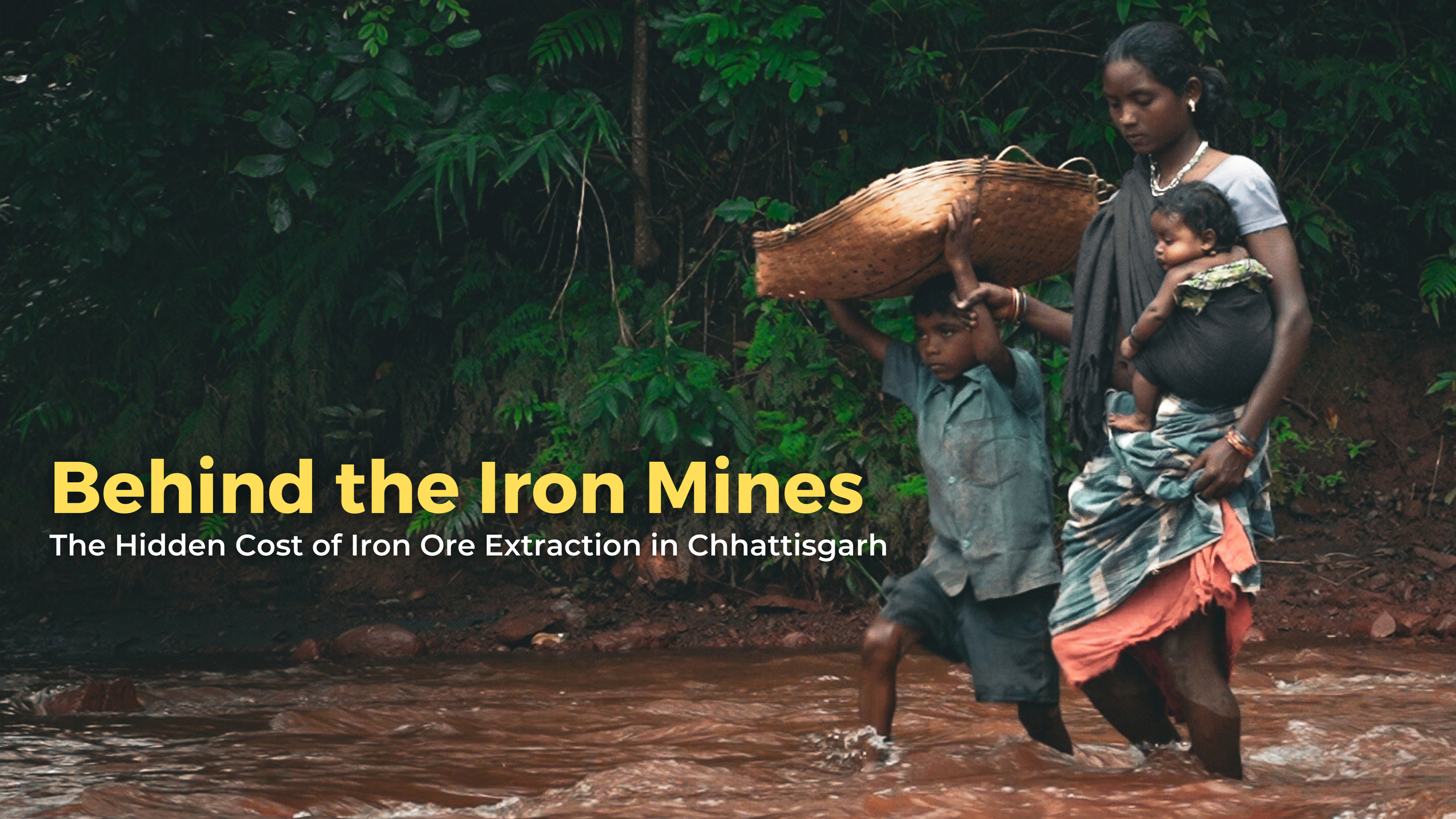
BEHIND THE IRON MINES | Hidden Cost of Iron Ore Extraction in Chhattisgarh
Chhannu Markam lost his wife and four children. He claims that the deaths were a result of health complications arising from a polluted red-water river. He lives in Loha Village in Chhattisgarh, a state heavily reliant on its revenue from iron ore mines.
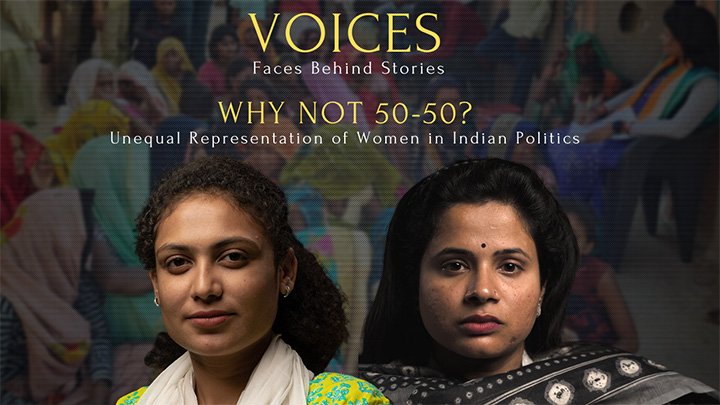
WHY NOT 50-50? | Unequal Representation of Women in Indian Politics
Rashmi Singh and Sadaf Khan, like many women in Madhya Pradesh state, aspire to participate in public life by running for elections. They have joined the ongoing movement advocating for equal representation of women in Indian politics. Presently, women hold less than 15% of seats in the country's parliament and most state Assemblies.

THE BROKEN | Dalit Sikhs Fight Back In Punjab
Gurwinder Singh is a Dalit Sikh. His family has a history of working as bonded labourers, known as "Seeris," for landowning farmers in Bauran Kala village in the Sikh-majority Punjab state. His father, now 65 years old, is still working as a "dung-rubbish picker," a job predominantly done by Dalit Sikhs, who are landless and impoverished.
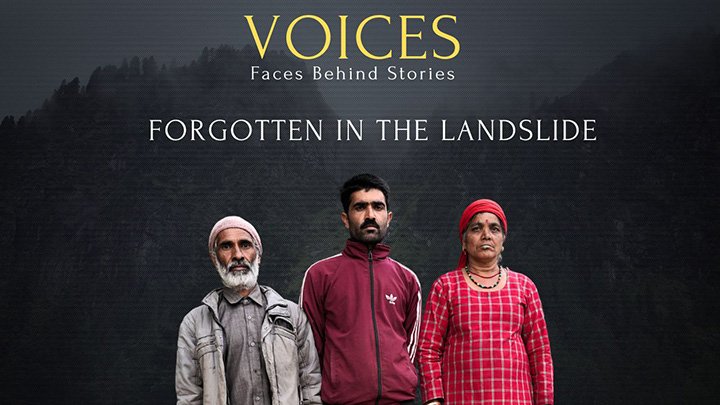
FORGOTTEN IN THE LANDSLIDE
Jhabe Ram bursts into tears as he narrates how a landslide swept away his family's house in Himachal Pradesh state, killing eight members of their joint family, including his wife and two children as well as his brother and his entire family. This northern state in the Himalayas is no stranger to natural calamities.
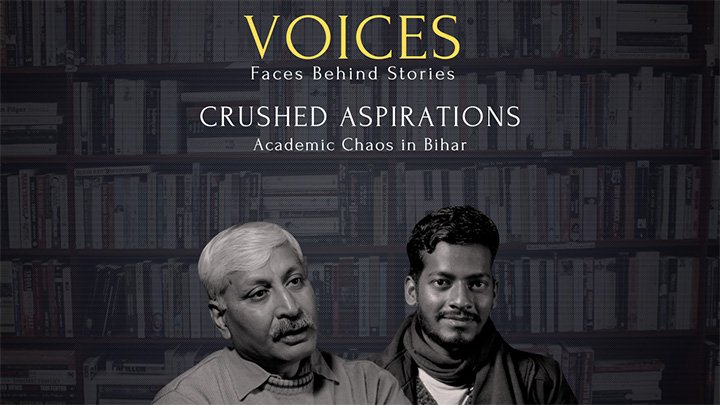
CRUSHED ASPIRATIONS | Academic Chaos In Bihar
Adarsh Kumar, a self-motivated, bright student from Bihar, aspires to pull his family out of poverty. However, he has little more than his resolve to take him closer to his dream, by serving in the Indian Army. To pass every stage of recruitment, and there are many, can his determination compensate for…
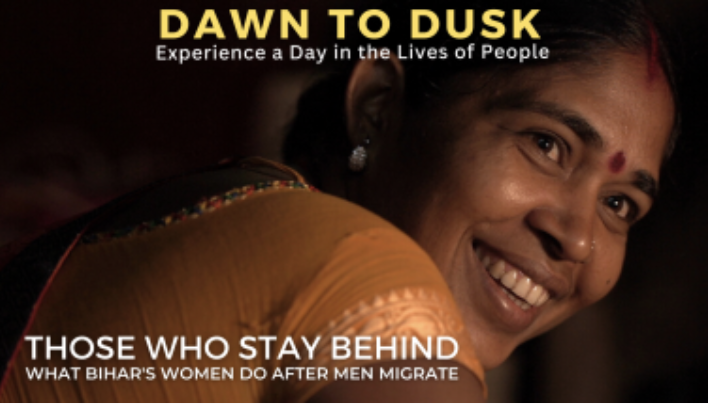
THOSE WHO STAY BEHIND | What Bihar’s Women Do after Men Migrate
Neelam Devi, from India's Bihar state, and her family were once unable to afford basic necessities such as oil for cooking, clothing, and even soap for personal hygiene. This dire situation forced her husband to leave and work as a labourer in Delhi, hundreds of kilometres away. Though they are now able to afford food, her two daughters still had to drop out of school.
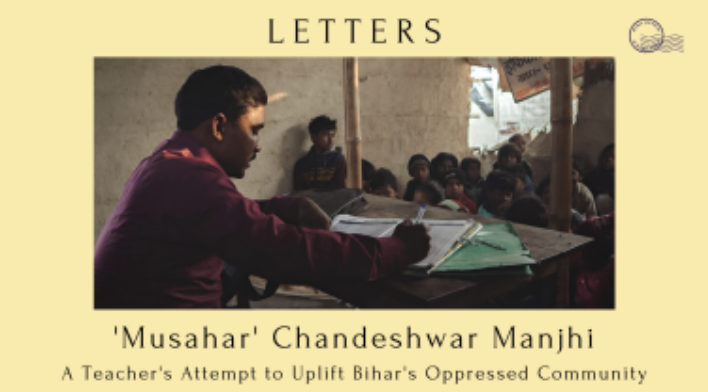
‘MUSAHAR’ CHANDESHWAR MANJHI | A Teacher’s Attempt to Uplift Bihar’s Oppressed Community
Chandeshwar Manjhi, a teacher in Bihar, is working to empower the Musahar community, a marginalized group of roughly 2.2 million people who are among the most oppressed in the state. With a low literacy rate and a history of poverty and discrimination, Musahars are the lowest of the low in India?s caste hierarchy.
